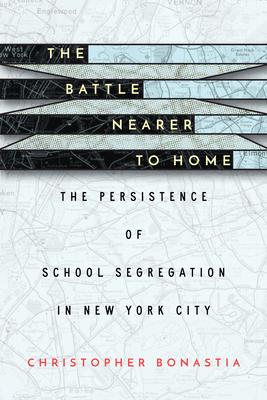Despite its image as an epicenter of progressive social policy, New York City continues to have one of the nation's most segregated school systems. Tracing the quest for integration in education from the mid-1950s to the present, The Battle Nearer to Home follows the tireless efforts by educational activists to dismantle the deep racial and socioeconomic inequalities that segregation reinforces. The fight for integration has shifted significantly over time, not least in terms of the way "integration" is conceived, from transfers of students and redrawing school attendance zones, to more recent demands of community control of segregated schools. In all cases, the Board eventually pulled the plug in the face of resistance from more powerful stakeholders, and, starting in the 1970s, integration receded as a possible solution to educational inequality. In excavating the history of New York City school integration politics, in the halls of power and on the ground, Christopher Bonastia unearths the enduring white resistance to integration and the severe costs paid by Black and Latino students. This last decade has seen activists renew the fight for integration, but the war is still far from won.

The Battle Nearer to Home: The Persistence of School Segregation in New York City
Despite its image as an epicenter of progressive social policy, New York City continues to have one of the nation's most segregated school systems. Tracing the quest for integration in education from the mid-1950s to the present, The Battle Nearer to Home follows the tireless efforts by educational activists to dismantle the deep racial and socioeconomic inequalities that segregation reinforces. The fight for integration has shifted significantly over time, not least in terms of the way "integration" is conceived, from transfers of students and redrawing school attendance zones, to more recent demands of community control of segregated schools. In all cases, the Board eventually pulled the plug in the face of resistance from more powerful stakeholders, and, starting in the 1970s, integration receded as a possible solution to educational inequality. In excavating the history of New York City school integration politics, in the halls of power and on the ground, Christopher Bonastia unearths the enduring white resistance to integration and the severe costs paid by Black and Latino students. This last decade has seen activists renew the fight for integration, but the war is still far from won.